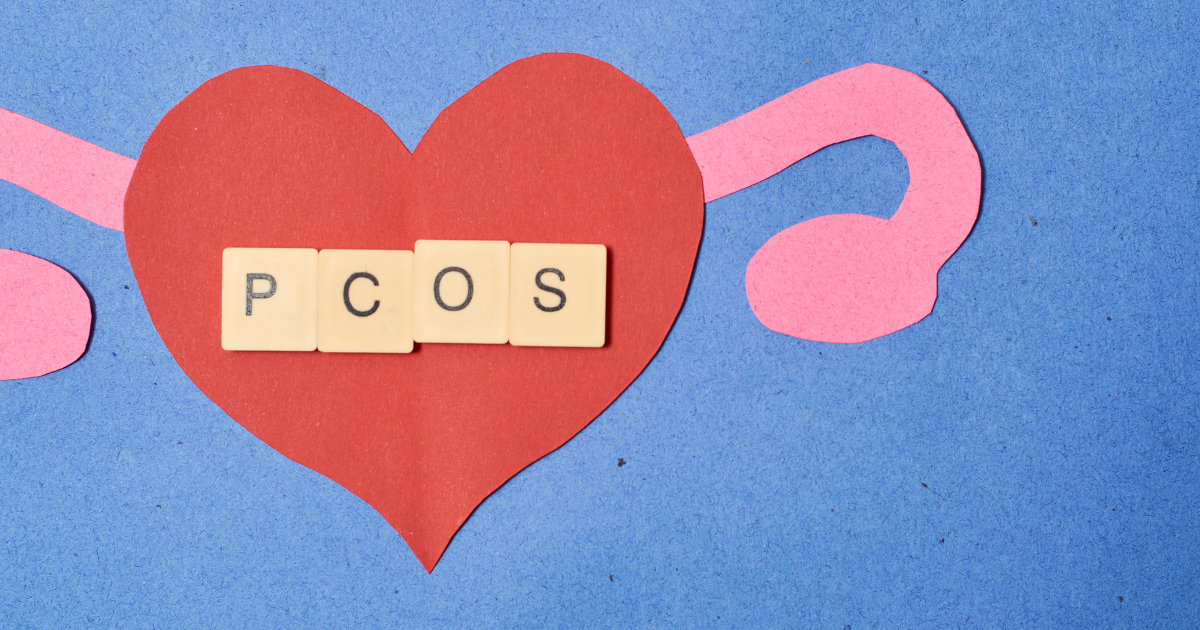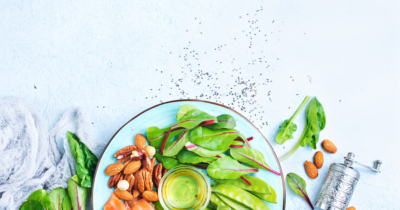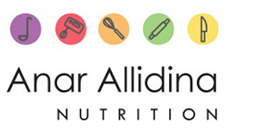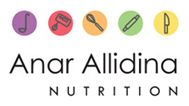
13 Sep PCOS Diet and Lifestyle Tips: Happy Awareness Month!
September marks the start of PCOS Awareness Month!
Did you know that PCOS Polycystic ovary syndrome (PCOS) affects 6-10% of women and impacts women’s hormone levels?
It also can affect women’s reproductive, psychological, metabolic, and cardiovascular health.
The focus of this month is to increase awareness about PCOS and how women with PCOS can best manage their symptoms.
As a specialized registered dietitian nutritionist, I help women take charge of their PCOS and fertility through lifestyle and diet interventions.
Keep reading to learn more about what PCOS is, what the current recommendations are, and my best PCOS diet and lifestyle tips!
To learn more about PCOS Awareness Month, head over to the website at this link!
What is PCOS?
Polycystic Ovary Syndrome (PCOS) is a hormone, metabolic, and reproductive condition. It causes enlarged ovaries that have small cysts on the outer edge.
It’s a lifelong condition and symptoms may start in adolescence and extend into post-menopause.
Even though PCOS is so pervasive, it’s complex and sadly significantly under-recognized within the medical communities. Additionally, studies show that women with PCOS may not be diagnosed early or receive appropriate guidance and information.
While the exact cause is unknown, one thing is for sure: you did not cause it!
Genetics, insulin resistance, and inflammation have all been linked to excess androgen production. Lifestyle changes to lower insulin resistance and inflammation play a key role in managing symptoms.
Symptoms of PCOS include:
- Irregular periods
- High levels of androgen hormones
- Enlarged ovaries
- Ovarian cysts
- Infertility
- Excessive hair growth
- Skin conditions
- And much more
The consequences of PCOS are more than just affecting fertility since it is a metabolic disorder. Having PCOS can increase your risk for cardiovascular disease and type 2 diabetes.
Current Recommendations

Doctors normally recommend weight loss and birth control pills to women with PCOS. But this is lazy advice and doesn’t solve the root cause!
Since the condition causes high levels of androgen hormones, hormonal birth control containing estrogen and progestin are given with the thought of rebalancing hormones.
While this can be part of management, the focus should be on lifestyle changes to help balance hormones.
Weight loss as a recommendation can be misleading because many lean women have PCOS as well. Working on reducing insulin resistance instead focuses on addressing the root cause of your condition!
The Importance of Lifestyle + Diet
A better way to manage your PCOS is with lifestyle and dietary treatments that address the underlying cause of your issues.
Further, through the food you eat and specific vitamins and minerals, you can address hormonal imbalances, fertility issues, insulin resistance, and inflammation. All of which can worsen the condition and its symptoms if left unmanaged.
Also, there are plenty of lifestyle factors that can impact your quality of life and disease risk. This includes high cortisol from chronic stress, sleep management, physical activity, and mindset to name a few!
PCOS Diet Tips

Here are some general diet tips that are beneficial for women with PCOS.
- Eat balanced meals that contain protein, carbs, & fat to help with insulin resistance
- Check out my latest article that contains blood-sugar-friendly lunch ideas!
- Focus on gut health by adding pre and probiotics into your diet
- Prebiotics: asparagus, leeks, garlic, green bananas
- Probiotics: fermented foods, yogurt, kefir, sauerkraut
- Prioritize anti-inflammatory foods
- Greens, healthy fats (olive oil, nuts, fatty fish), fruits high in antioxidants, turmeric
- Get an adequate amount of specific micronutrients that have shown to be beneficial
- Use supplements effectively and with the supervision of a dietitian
- Manage your stress levels to prevent spikes in cortisol
- Diaphragmatic breathing, meditation, nature walks, self-care, journaling
- Engage in physical activity that supports your body
- Resistance training to build muscle mass
- A mix of low and high-intensity cardio for heart health
These are just a few ways you can use diet and lifestyle to help manage your PCOS.
For additional support with your PCOS and insulin resistance issues, head over to my services page to learn more about my nutrition coaching options! There is no better time to take control of your health.




Sorry, the comment form is closed at this time.